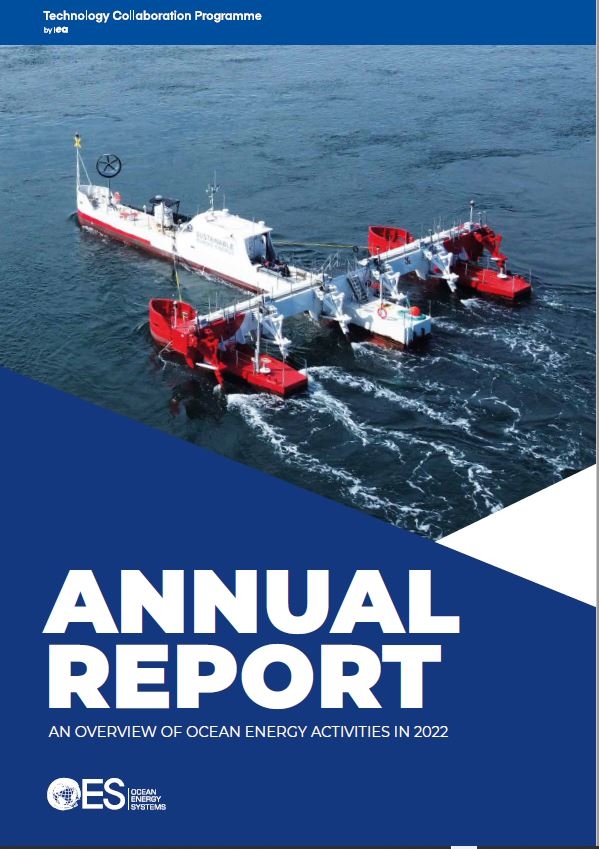Today, the International Energy Agency Ocean Energy Systems (IEA-OES) published its highly anticipated 2022 Annual Report. This comprehensive report provides an overview of national policies, research, and technology demonstration on ocean energy in member countries. Additionally, the report highlights the achievements and progress of IEA-OES collaborative projects.

The report has revealed that governments around the world are increasingly adopting new legislation and regulatory regimes to support offshore energy projects. Strategic approaches are being taken by governments to tackle the challenges faced by the industry.
The report also identifies market incentives in some countries, such as the UK's Contracts for Difference (CfD) scheme, which awarded four contracts to tidal energy projects. For the first time, these contracts were separated from other more mature technologies.
The industry is shifting from small-scale demonstrations and pilot projects to higher technology readiness levels. The accumulated operational hours of some devices demonstrate increased reliability and availability, giving confidence to scale-up the technology. Successful testing programmes have been completed, and new devices are progressing to deployment and commissioning tests.
Several test sites around the world are playing a pivotal role in the testing, validation, and certification of technologies. In addition, several initiatives are making progress in providing clean energy to remote communities that lack access to the electrical grid and rely on fossil fuels for their energy supply.
Furthermore, the report shows that several countries continued with their funding programmes fundamental for ocean energy projects in their journey for commercialisation. The ocean energy sector experienced record US budget support in 2022. The European Commission also continued to support the development of the ocean energy sector through an array of activities and programmes.
“I am pleased to have witnessed such an acceleration of measured but concrete achievements by the MRE sector, echoed by a sincere awareness by policy makers that effective support and appropriate regulations are essential for MRE to contribute to the energy transition challenge.” says
Yann-Hervé De Roeck, Chair of IEA-OES in 2021-2022.
Matthijs Soede, the new elected Chair, says “Once again, 2022 showed the need for a clean energy transition, as well as the growing importance of security of supply. It is crucial for governments, industries, and research organizations to engage in global collaboration to bring ocean energy technologies to market. Collaboration starts with knowledge sharing and this annual report offers an excellent overview of the ongoing developments in ocean energy.”
IEA-OES remained committed to its strategic tasks in 2022, with the OES-Environmental Task focused on activities to bridge the gap between scientific knowledge and practical application with the goal of streamlining the consenting and licensing process for ocean energy projects. IEA-OES also published a study to identify the opportunities and challenges of the offshore aquaculture sector as a key market for ocean renewable energy development. A new study on the economics of OTEC was initiated, in continuation of the White Paper on OTEC published last year. Efforts were also made to increase a broader acceptance of the international performance evaluation framework of ocean energy technologies, providing specific guidance for public funders to design or improve national or international funding programmes.
The report's findings provide a positive outlook for the future of clean energy and highlight the significant potential of the ocean energy sector.


 The report has revealed that governments around the world are increasingly adopting new legislation and regulatory regimes to support offshore energy projects. Strategic approaches are being taken by governments to tackle the challenges faced by the industry.
The report has revealed that governments around the world are increasingly adopting new legislation and regulatory regimes to support offshore energy projects. Strategic approaches are being taken by governments to tackle the challenges faced by the industry.